Filter by

Künstliche Intelligenz in der Forschung: Neue Möglichkeiten und Herausforde…
Dieses Buch ist eine Open Access Publikation. Der lange gehegte Traum von künstlicher Intelligenz (KI) wird in unserer Alltagswelt zunehmend Realität. Damit verbinden sich hohe gesellschaftliche Erwartungen, aber auch Sorgen hinsichtlich einer schleichenden Entmündigung des Menschen. Am Beispiel des Forschungssektors lotet dieser Band die Optionen, Entwicklungschancen und Risiken von KI-Tec…
- Edition
- 1st Edition
- ISBN/ISSN
- 9783662634493
- Collation
- XXIV, 179
- Series Title
- -
- Call Number
- -

Alternatives to Animal Testing
This open access book presents recent advances in the pure sciences that are of significance in the quest for alternatives to the use of animals in research and describes a variety of practical applications of the three key guiding principles for the more ethical use of animals in experiments – replacement, reduction, and refinement, collectively known as the 3Rs. Important examples from acro…
- Edition
- 1
- ISBN/ISSN
- 9789811324475
- Collation
- VI, 130 hlm; ill., lamp.,
- Series Title
- -
- Call Number
- -
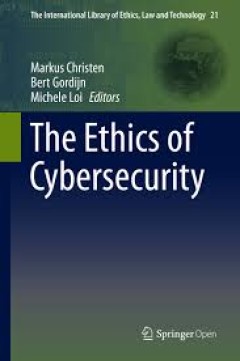
The Ethics of Cybersecurity
This open access book provides the first comprehensive collection of papers that provide an integrative view on cybersecurity. It discusses theories, problems and solutions on the relevant ethical issues involved. This work is sorely needed in a world where cybersecurity has become indispensable to protect trust and confidence in the digital infrastructure whilst respecting fundamental values l…
- Edition
- -
- ISBN/ISSN
- 978-3-030-29053-5
- Collation
- XVII, 384
- Series Title
- The International Library of Ethics, Law and Technology (ELTE, volume 21)
- Call Number
- 170 ETH
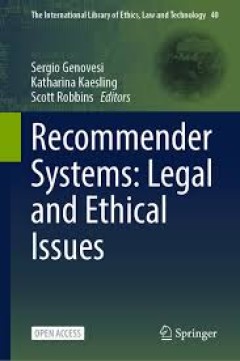
Recommender Systems: Legal and Ethical Issues
This open access contributed volume examines the ethical and legal foundations of (future) policies on recommender systems and offers a transdisciplinary approach to tackle important issues related to their development, use and integration into online eco-systems. This volume scrutinizes the values driving automated recommendations - what is important for an individual receiving the recommendat…
- Edition
- -
- ISBN/ISSN
- 978-3-031-34804-4
- Collation
- VI, 222
- Series Title
- The International Library of Ethics, Law and Technology (ELTE, volume 40)
- Call Number
- 340 REC
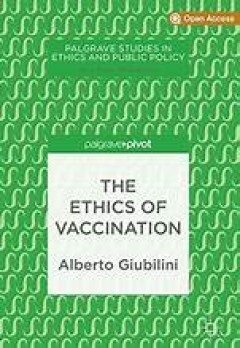
The Ethics of Vaccination
This open access book discusses individual, collective, and institutional responsibilities with regard to vaccination from the perspective of philosophy and public health ethics. It addresses the issue of what it means for a collective to be morally responsible for the realisation of herd immunity and what the implications of collective responsibility are for individual and institutional respon…
- Edition
- 1
- ISBN/ISSN
- 978-3-030-02068-2
- Collation
- -
- Series Title
- Palgrave Studies in Ethics and Public Policy
- Call Number
- 2946-2746
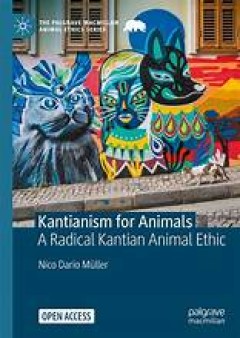
Kantianism for Animals
This open access book revises Kant’s ethical thought in one of its most notorious respects: its exclusion of animals from moral consideration. The book gives readers in animal ethics an accessible introduction to Kant’s views on our duties to others, and his view that we have only ‘indirect’ duties regarding animals. It then investigates how one would have to depart from Kant in order t…
- Edition
- 1
- ISBN/ISSN
- 978-3-031-01930-2
- Collation
- -
- Series Title
- The Palgrave Macmillan Animal Ethics Series
- Call Number
- XXI, 245
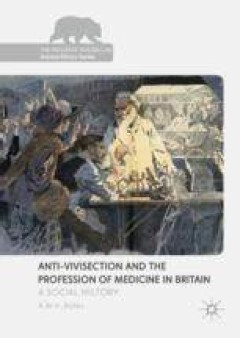
Anti-Vivisection and the Profession of Medicine in Britain
This book is open access under a CC BY 4.0 license. This book explores the social history of the anti-vivisection movement in Britain from its nineteenth-century beginnings until the 1960s. It discusses the ethical principles that inspired the movement and the socio-political background that explains its rise and fall. Opposition to vivisection began when medical practitioners complained…
- Edition
- 1
- ISBN/ISSN
- 978-1-137-55697-4
- Collation
- -
- Series Title
- The Palgrave Macmillan Animal Ethics Series
- Call Number
- XXI, 217

Bearing Witness
This open access book is the biography of one of Britain’s foremost animal welfare campaigners and of the world of activism, science, and politics she inhabited. In 1964, Ruth Harrison’s bestseller Animal Machines triggered a gear change in modern animal protection by popularising the term ‘factory farming’ alongside a new way of thinking about animal welfare. Here, historian Claas …
- Edition
- 1
- ISBN/ISSN
- 978-3-030-62792-8
- Collation
- -
- Series Title
- Palgrave Studies in the History of Social Movements
- Call Number
- XXVI, 271
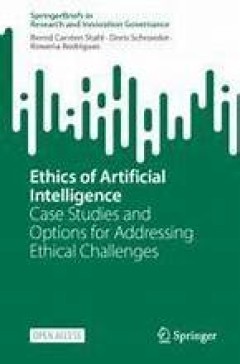
Vulnerability Revisited
Open access. This open-access book discusses vulnerability and the protection-inclusion dilemma of including those who suffer from serious poverty, severe stigma, and structural violence in research. Co-written with representatives from indigenous peoples in South Africa and sex workers in Nairobi, the authors come down firmly on the side of inclusion. In the spirit of leaving no one behind in …
- Edition
- 1
- ISBN/ISSN
- 978-3-031-57896-0
- Collation
- -
- Series Title
- SpringerBriefs in Research and Innovation Governance
- Call Number
- XIX, 145
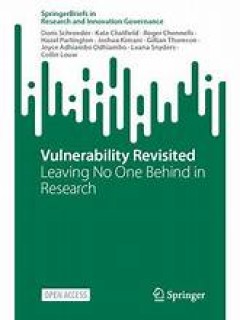
Ethics of Artificial Intelligence
This open access collection of AI ethics case studies is the first book to present real-life case studies combined with commentaries and strategies for overcoming ethical challenges. Case studies are one of the best ways to learn about ethical dilemmas and to achieve insights into various complexities and stakeholder perspectives. Given the omnipresence of AI ethics in academic, policy and medi…
- Edition
- 1
- ISBN/ISSN
- 978-3-031-17040-9
- Collation
- -
- Series Title
- SpringerBriefs in Research and Innovation Governance
- Call Number
- XII, 116
 Computer Science, Information & General Works
Computer Science, Information & General Works  Philosophy & Psychology
Philosophy & Psychology  Religion
Religion  Social Sciences
Social Sciences  Language
Language  Pure Science
Pure Science  Applied Sciences
Applied Sciences  Art & Recreation
Art & Recreation  Literature
Literature  History & Geography
History & Geography